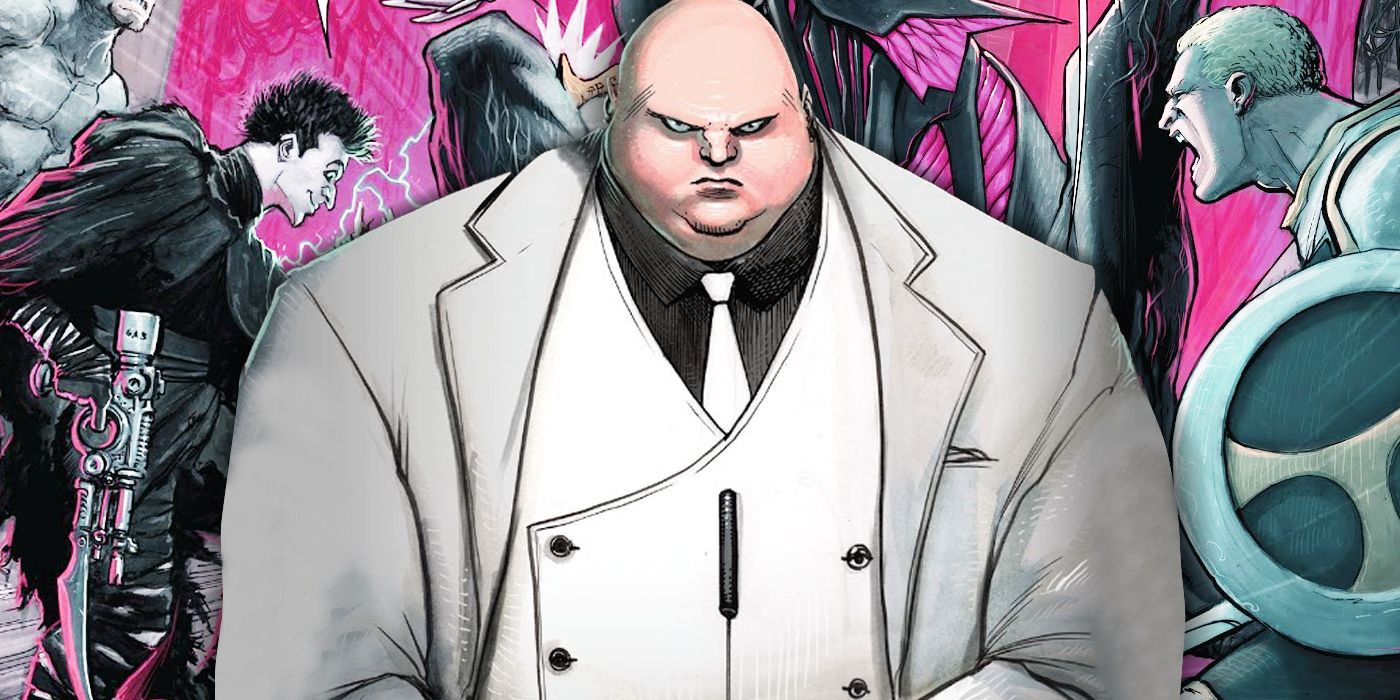With the entire Marvel Universe engulfed in a war with Knull, Wilson Fisk sends the Thunderbolts on a genuine, and familiar, suicide mission.
WARNING: The following contains spoilers for King in Black: Thunderbolts #1 by Matthew Rosenberg, Juan Ferreyra, and VC’s Joe Sabino, on sale now.
“King in Black” has introduced the Marvel Universe to a whole new kind of terror, one that has engulfed entire planets and transformed them into nightmarish satellites for Knull to harvest and control. There are few heroes left, and though there are some who may be able to stand against the dark god of the symbiotes on their own, so far none have done anything more than draw Knull’s attention for a moment or two.
With little hope left, it falls on any who are able and willing to join in the fight, including the worst of the worst. In a last-ditch effort to combat Knull, Wilson Fisk has reformed the Thunderbolts with an all-new roster, and he’s just sent them on a suicide mission that would make on DC team proud.
Fisk has gathered a less than elite squad of killers and mercenaries to undertake the journey across the symbiote infested remains of New York City to the Ravencroft Institute, hoping that Norman Osborn will be of good use in the war. Among their ranks are villains such as the Taskmaster and Rhino, as well as lesser-known characters such as Star and Ampere. Each of them is uniquely suited to the task at hand in one fashion or another, and they’re all capable of the incredible level of violence necessary to survive the landscape teeming with tendrils of living darkness. A group of mismatched supervillains teaming up to throw themselves into an unenviable task, in the face of an ancient and seemingly all-powerful evil sounds like the setup for a movie when you say it that way. As a matter of fact, it even sounds like one that has already been made.
The new Thunderbolts aren’t just rip-offs of DC’s Suicide Squad, their mission itself is almost taken right out of their namesake film. 2016’s Suicide Squad saw the titular team join forces at the violent insistence of Amanda Waller, who recruited them all from their various prison cells to take on the Enchantress who had gone mad and was threatening the entire world with her incredible powers. The film saw members die on the orders of their handler, something which Wilson Fisk uses as a tactic to get the rest of his recruits moving when the D-list villain Incendiary decided to take his chances on his own. The film also played up the death of a team member for laughs, something which also happens in Thunderbolts when Ampere loses his head to the snapping jaws of one of Knull’s symbiote dragons. Mister Fear even takes a moment to stop and admire a broken jewelry store window before taking a couple of shiny baubles for himself, yet another act of casual lawlessness that Suicide Squad showcased one of its own partaking in. It might seem that the similarities never end, but that doesn’t mean the Thunderbolts don’t stand on their own.
There might be some broad strokes that are the same, and even some small story beats that line up in much the same fashion, but these are expected occurrences anytime that supervillains are forced to work together for the greater good. None of the characters who are thrust into heroics are there because they want to be, but rather because they need to be, whether for the good of the planet, a chance to redeem themselves, or just a shot at fortune and freedom. Even with the severity of the threats they face off against being so high, the Thunderbolts are in territory that the Suicide Squad has quite possibly never seen the likes of for themselves.
DC’s foremost black ops bad guys aren’t typically the ones who get called in when the entire universe is at stake. Then again, if all but a handful of heroes remained, they might take after the Thunderbolts a bit more themselves.
About The Author
